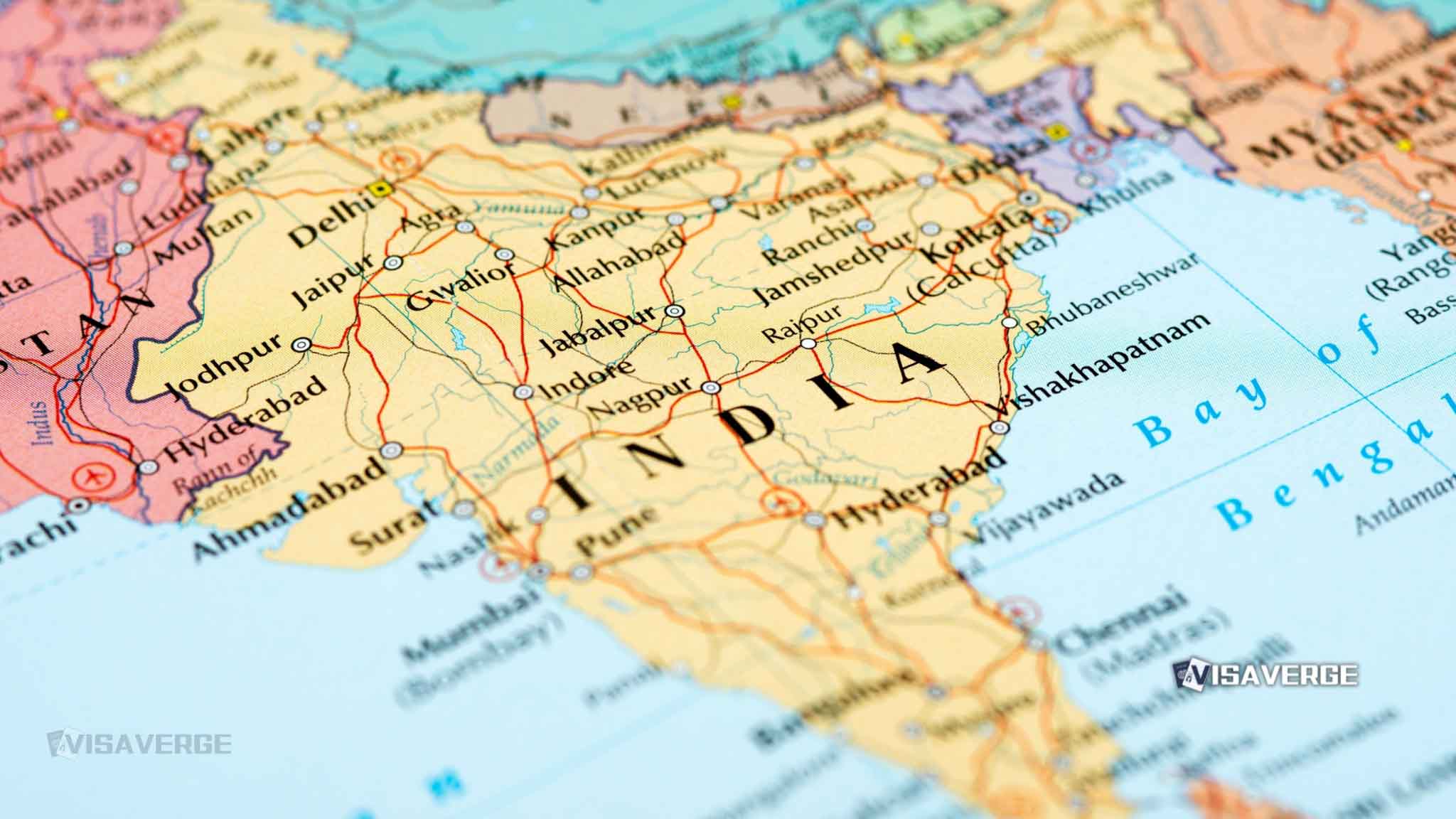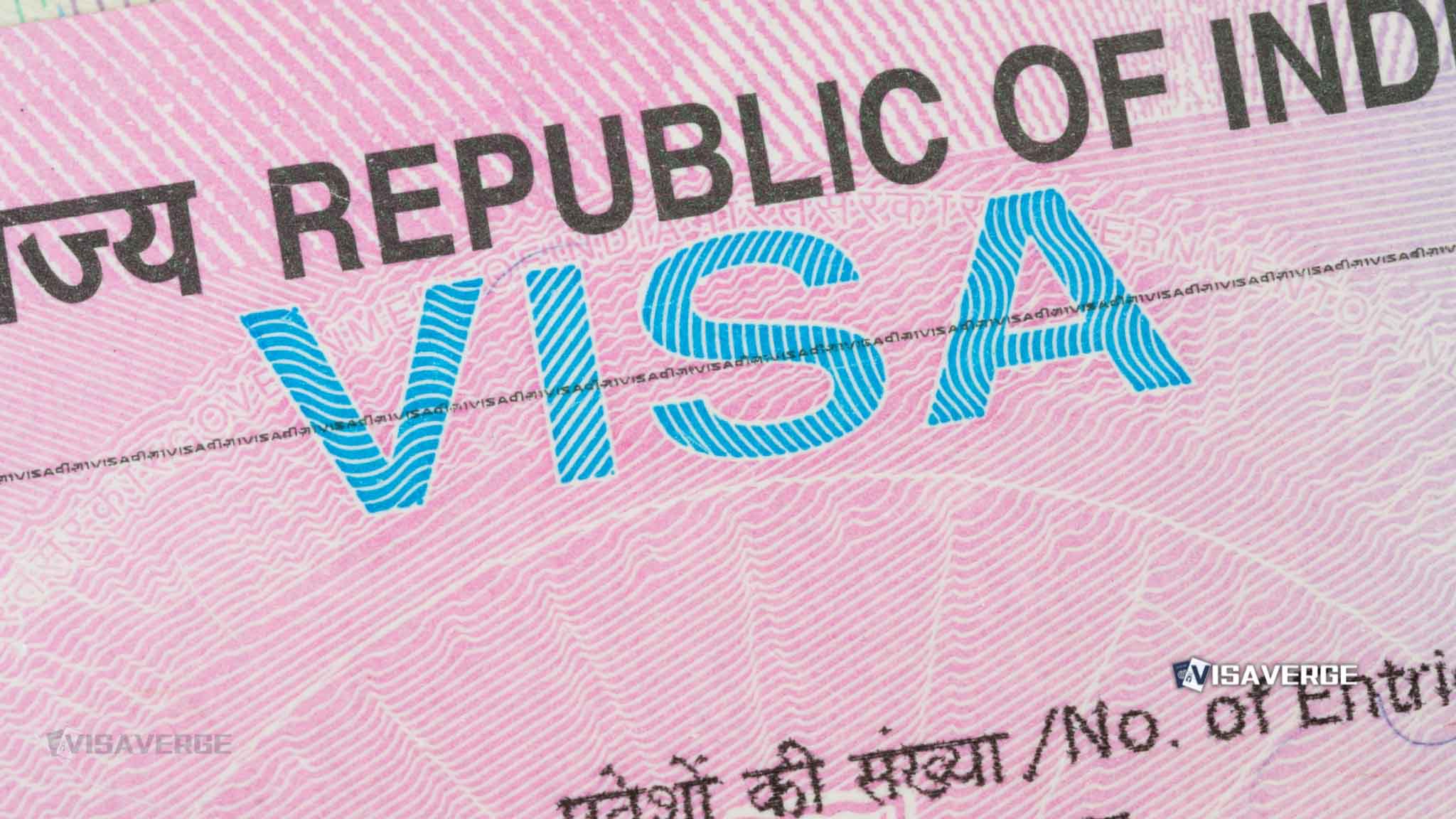Key Takeaways
• On June 28, 2025, seven Bangladeshi nationals were arrested in Mumbai and Pune for illegal immigration.
• Maharashtra government enforces employer accountability with online verification to prevent hiring illegal immigrants.
• In 2025, Maharashtra arrested 766 illegal Bangladeshi migrants, deporting around 300 and cancelling 1.8 million ration cards.
Seven Bangladeshis Arrested for Illegal Immigration in Mumbai and Pune: Maharashtra Steps Up Crackdown
On June 28, 2025, police in Mumbai and Pune arrested seven Bangladeshi nationals for staying in India without valid documents. This event is part of a larger, ongoing effort by the Maharashtra government to address the issue of illegal immigration, especially from Bangladesh. The recent arrests highlight the state’s growing focus on enforcing immigration laws, protecting public resources, and ensuring that only those with legal status can live and work in the region.

What Happened: The Latest Arrests
Who: Seven Bangladeshi nationals
What: Arrested for illegal immigration and staying without valid papers
When: June 28, 2025
Where: Mumbai and Pune, Maharashtra
Why: Part of a broader crackdown on illegal immigration from Bangladesh
How: Police identified, verified, and detained the individuals during routine checks and targeted raids
The Mumbai Police, working closely with immigration authorities, have made it clear that these actions are not isolated. Instead, they are part of a systematic approach to address the problem of illegal immigration, especially in major cities like Mumbai, where the presence of undocumented migrants has become a growing concern.
Maharashtra’s New Approach: Employer Accountability and Online Verification
In response to the ongoing issue, the Maharashtra government issued a new circular on June 27, 2025. This circular holds business owners responsible if they hire illegal Bangladeshi migrants. The government plans to use online verification systems to check the legal status of workers before they are hired. This move is designed to stop illegal immigrants from finding work and to discourage employers from breaking the law.
Key points of the new policy:
– Employers must verify the legal status of all workers.
– Online verification systems will be used to check documents and prevent the hiring of illegal immigrants.
– Businesses found employing illegal immigrants can face penalties, including fines and possible legal action.
This policy shift signals a stricter regulatory approach, aiming to cut off job opportunities for illegal immigrants and make it harder for them to settle in Maharashtra.
The Scale of the Problem: Arrests, Deportations, and Ration Card Cancellations
The recent arrests are just one part of a much larger effort. According to Mumbai Police, about 766 illegal Bangladeshi immigrants have been arrested in Maharashtra so far in 2025. Of these, around 300 have already been deported back to Bangladesh. These numbers show that the state is taking the issue seriously and is willing to use strong measures to address it.
Another important part of the crackdown is the cancellation of ration cards. Ration cards are government-issued documents that allow people to buy food and other essentials at subsidized rates. Authorities believe that many illegal immigrants have managed to get these cards using fake documents. To stop this, the Maharashtra government has cancelled 18 lakh (1.8 million) ration cards across the state as of May 18, 2025. In Mumbai alone, 4.8 lakh (480,000) ration cards have been cancelled.
Why is this important?
Cancelling ration cards helps the government make sure that only legal residents can access public benefits. It also makes it harder for illegal immigrants to live in the state without proper documents.
How the Crackdown Works: Step-by-Step Enforcement and Deportation
The process of identifying and removing illegal immigrants involves several steps:
- Identification:
Police and immigration officers carry out raids and document checks in areas where illegal immigration is suspected. They also act on public reports and tips. - Verification:
Suspected illegal immigrants are asked to show their documents. If they cannot provide valid papers, or if their documents are found to be fake, they are detained. -
Arrest:
Once it is clear that a person is staying in India illegally, the police formally arrest them. -
Detention:
Those arrested are held in immigration detention centers while their cases are processed. -
Deportation:
After legal procedures, confirmed illegal immigrants are deported to Bangladesh or their country of origin. -
Employer Accountability:
Businesses that hire illegal immigrants are investigated. If found guilty, they can face penalties. Online verification systems are used to prevent future illegal employment.
This step-by-step approach is designed to ensure that only those who are in India legally can stay and work in the country.
Official Statements and Stakeholder Perspectives
The crackdown on illegal immigration has drawn comments from several key figures:
- Chandrashekhar Bawankule, Maharashtra Cabinet Minister, has stated that the government will not harass the general public. He emphasized that the focus is on Bangladeshi infiltrators and those using fake documents, not on legitimate residents or laborers from other Indian states.
-
Mumbai Police have stressed their commitment to enforcing immigration laws. They report that their actions are based on clear evidence and proper verification.
-
Himanta Biswa Sarma, Chief Minister of Assam, has highlighted the central government’s “push back” strategy. This approach involves deporting illegal immigrants, including both Rohingyas and Bangladeshis, to protect national security.
-
Saiddul Sheikh, a resident from West Bengal, supports the crackdown on illegal immigrants but warns that legitimate laborers from neighboring Indian states should not be targeted. He points out that many people from West Bengal come to Maharashtra for work and should not be mistaken for illegal immigrants.
Policy Implications: What Does This Mean for Different Groups?
For Employers
Employers in Maharashtra now face legal accountability if they hire illegal Bangladeshi migrants. The new online verification system means that businesses must check the legal status of every worker before hiring. Failure to do so can result in fines and other penalties.
For Illegal Immigrants
Those found to be living in Maharashtra without valid documents face arrest, detention, and deportation. The government is also taking steps to prevent illegal immigrants from accessing public benefits, such as ration cards.
For Legitimate Migrants and Laborers
People from neighboring Indian states, like West Bengal, who come to Maharashtra for work, are subject to verification. However, officials have made it clear that these individuals are not the main targets of the crackdown. The focus remains on those who are in the country illegally or using fake documents.
For Bengali-Speaking Muslim Communities
Some reports suggest that the crackdown has affected Bengali-speaking Muslim communities, even those with valid documents. Human rights groups warn that these actions can sometimes lead to profiling and harassment of legitimate residents. The government insists that genuine citizens and legal migrants will not be harassed, but concerns remain about the impact on these communities.
Background: Why Is Illegal Immigration from Bangladesh a Major Issue?
India has a long history of migration from Bangladesh, especially in border states like West Bengal, Assam, and Maharashtra. Over the years, many people have crossed the border in search of better job opportunities and living conditions. However, illegal immigration has become a major political and social issue, with regular crackdowns and deportations.
The current wave of enforcement follows a national policy shift towards stricter immigration controls. This includes the use of detention centers, such as the Matia detention center in Assam, to hold illegal immigrants before deportation. The cancellation of ration cards and other public benefits is also part of this broader strategy to identify and remove illegal immigrants.
National Security and Human Rights: Balancing Priorities
Government officials argue that strict measures are necessary to protect national security and public resources. They point out that illegal immigration can strain public services, create security risks, and make it harder for legal residents to access benefits.
However, human rights advocates warn that aggressive enforcement can sometimes lead to the harassment of legitimate residents, especially those who share language or cultural ties with Bangladesh. There are concerns about profiling, civil rights violations, and the risk of targeting innocent people.
Key points of debate:
– Security vs. Rights: How to protect the country without violating the rights of legitimate residents.
– Verification: Ensuring that document checks are fair and accurate.
– Community Impact: Addressing the concerns of Bengali-speaking Muslim communities who may feel unfairly targeted.
The Broader National Picture: Other States and Central Government Actions
Maharashtra is not alone in its efforts to address illegal immigration. Other states that share borders with Bangladesh, such as Odisha and West Bengal, are also maintaining strict vigilance to prevent infiltration. The central government has adopted a “push back” strategy, which involves deporting illegal immigrants and strengthening border controls.
According to analysis by VisaVerge.com, these actions are part of a nationwide trend towards tighter immigration enforcement. The central government is also working to streamline deportation procedures and improve detention facilities to handle the growing number of cases.
What’s Next? Future Outlook and Anticipated Developments
Looking ahead, the Maharashtra government is expected to continue, and possibly intensify, its enforcement actions. This could include expanding the use of online verification systems for employers and increasing police vigilance in areas with high numbers of illegal immigrants.
Other states are likely to follow similar strategies, especially those that share borders with Bangladesh. The central government may introduce new policies to make deportation procedures faster and more efficient. At the same time, debates about the rights of Bengali-speaking minorities and the balance between security and human rights are likely to continue.
Possible future developments:
– More online verification for employers
– Increased use of detention centers
– Faster deportation processes
– Ongoing legal and political debates about civil rights
Practical Guidance: What Should Employers and Residents Do?
For Employers:
– Always verify the legal status of workers before hiring.
– Use the online verification system provided by the Maharashtra government.
– Keep records of all verification checks to avoid penalties.
For Residents:
– Make sure all personal documents are valid and up to date.
– If you are from another Indian state, carry proof of identity and residence.
– Report any suspected illegal immigration to local authorities.
For Those Facing Verification:
– Cooperate with police and immigration officers during document checks.
– If you have valid documents, present them promptly to avoid misunderstandings.
For more information on immigration rules and procedures in India, you can visit the Ministry of Home Affairs, Government of India website, which provides official guidelines and contact details for immigration-related queries.
Conclusion: The Ongoing Challenge of Illegal Immigration in Mumbai and Beyond
The recent arrests of seven Bangladeshis in Mumbai and Pune are just the latest example of Maharashtra’s determined approach to tackling illegal immigration. With new policies holding employers accountable, the cancellation of ration cards, and a focus on deportation, the state is sending a clear message that illegal immigration will not be tolerated.
At the same time, officials stress that the rights of legitimate residents and laborers from other Indian states will be protected. The challenge for the government is to balance security needs with respect for civil rights, especially for communities that may be affected by these actions.
As the crackdown continues, it is important for everyone—employers, residents, and migrants—to understand their rights and responsibilities. Staying informed and following the law is the best way to avoid problems and ensure a safe, legal stay in Maharashtra and across India.
If you have questions or concerns about your immigration status, contact your local police station or the immigration office in your district. Staying updated on the latest rules and procedures can help you avoid legal trouble and protect your rights.
For further analysis and updates on immigration issues in India, VisaVerge.com reports that the situation remains dynamic, with ongoing policy changes and enforcement actions expected in the coming months.
Learn Today
Illegal immigration → Entering or residing in a country without legal permission or valid documents.
Deportation → The official removal of a foreign national from a country due to illegal status.
Ration card → A government-issued document that allows access to subsidized food and public resources.
Online verification system → A digital tool used to confirm the legal status of workers before employment.
Employer accountability → Legal responsibility placed on employers for hiring individuals without proper immigration status.
This Article in a Nutshell
Seven Bangladeshis were arrested on June 28, 2025, marking Maharashtra’s intensified fight against illegal immigration. New policies hold employers accountable through online checks, aiming to block job access and public benefits for undocumented migrants, reinforcing security and legal compliance in Mumbai and Pune.
— By VisaVerge.com






